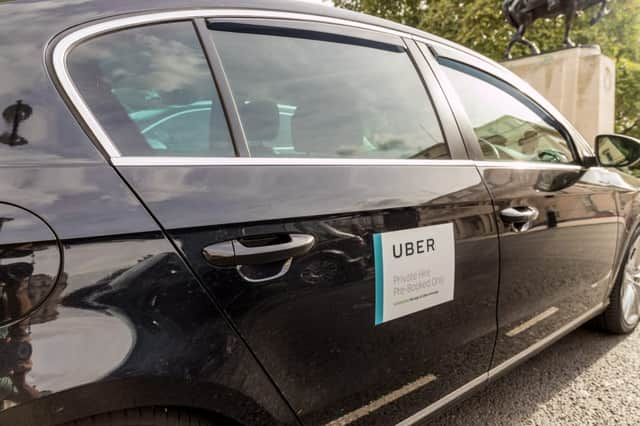Uber accused of trying to avoid up to £100m owed to workers after Supreme Court ruling


The taxi hailing app Uber has been accused of trying to stop drivers from claiming back missed holiday and wage payments, following a major Supreme Court ruling.
After a lengthy legal battle, the UK Supreme Court ruled on Friday (19 Feb) that the firm must class its drivers as workers, which could result in Uber being forced to make backdated payments worth up to £100 million.
‘A kick in the teeth’
Advertisement
Hide AdAdvertisement
Hide AdDespite this, Uber sent out a message to its drivers, seemingly downplaying the impact of the ruling, claiming that it only applies to “a small number of drivers from 2016”.
Speaking to the Guardian, a driver who received the message from Uber said: “After hearing about the court decision I was feeling slightly elated and thought at last things may change, but when I received the message from Uber it felt like a kick in the teeth saying it only applies to a few drivers.”
The company claims that changes made to the way they operate since 2016 mean that the Supreme Court verdict only impacts a select few drivers directly involved with proceedings.
However, those involved with the legal claim say that this is an unreasonably narrow understanding of the ruling, and that the company may be trying to downplay the decision in order to discourage eligible drivers from accessing money they are owed.
Advertisement
Hide AdAdvertisement
Hide AdThe law firms involved with the case, Leigh Day and Keller Lenker, expect that the total amount of claimants could be over 10,000, with each entitled to an average of £10,000, due to missed sick pay and holiday entitlement.
‘Uber is trying to deter people’
Partner at Leigh Day, Nigel Mackay, said: “There is no way they can say ‘this doesn’t apply’ with confidence. To suggest that the changes they talk about have any impact on the Supreme Court findings, the effect of that is very misleading.
“Uber is trying to deter people from the claim with this message.”
Managing director of Keller Lenker, Andrew Nugent Smith, said that while the court’s decision “did relate to historic terms and practices, that Uber has since changed, we are confident that drivers must still be treated as workers.”
He added: “To suggest that there is no impact at all on the wider driver community, and current conditions and working practices, is misleading."